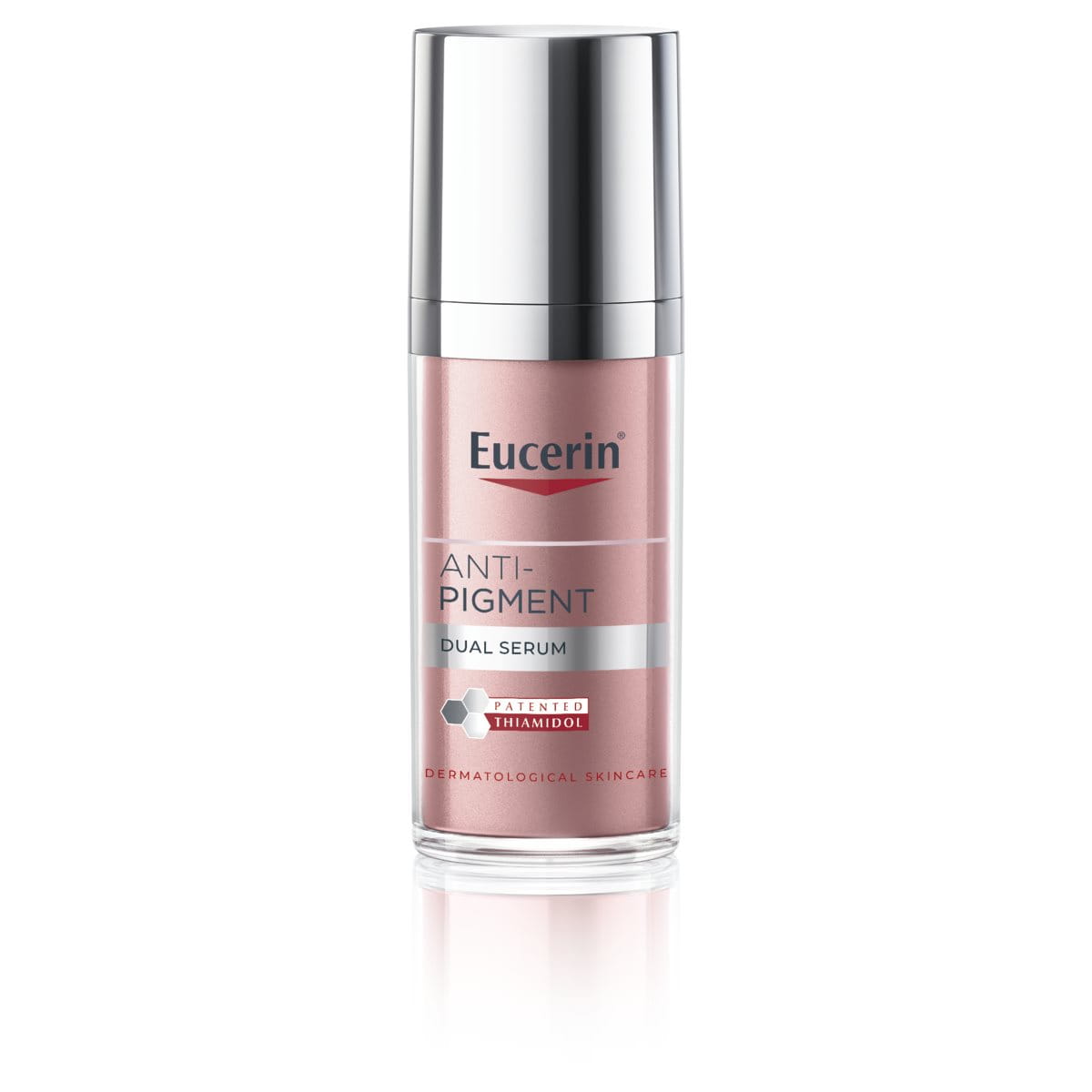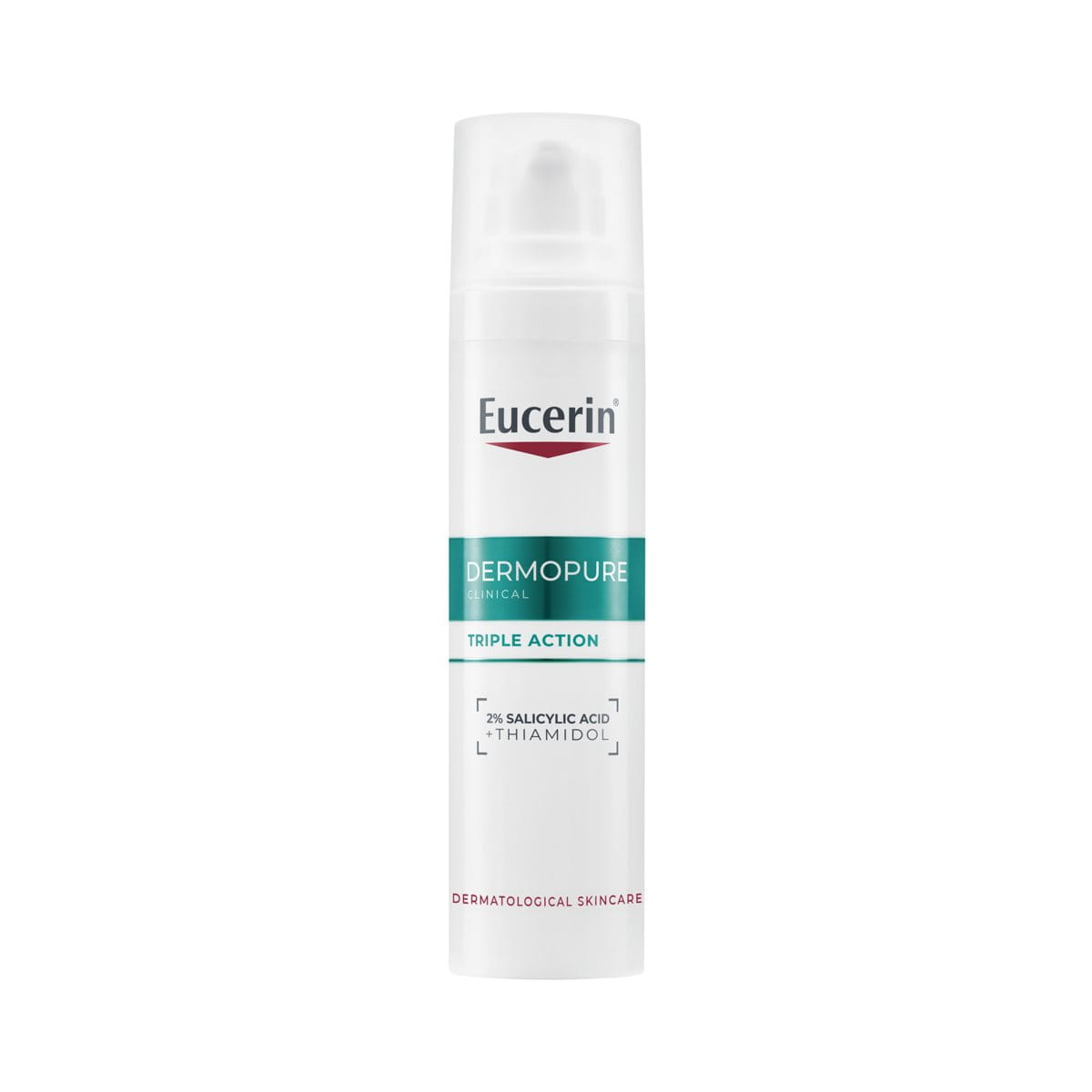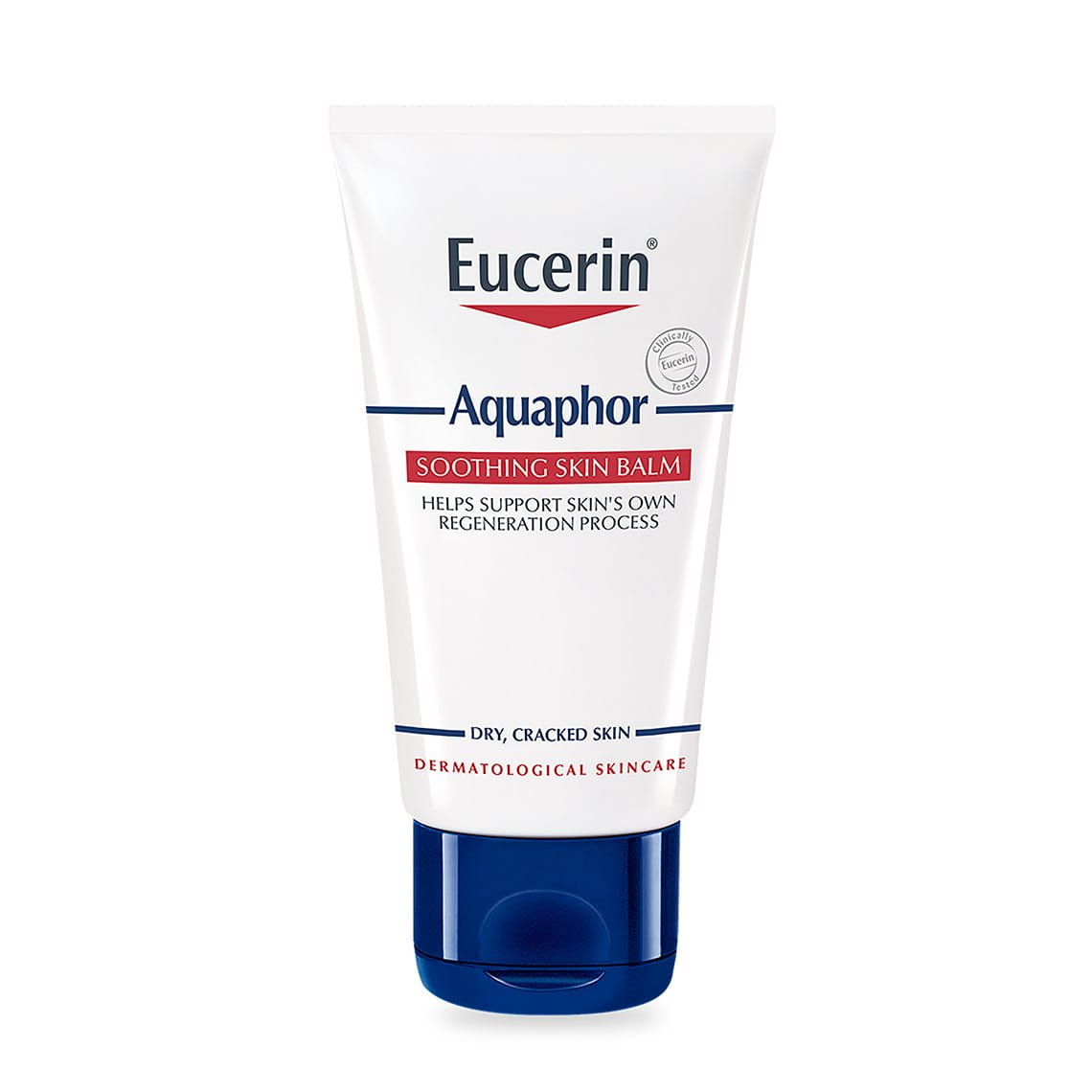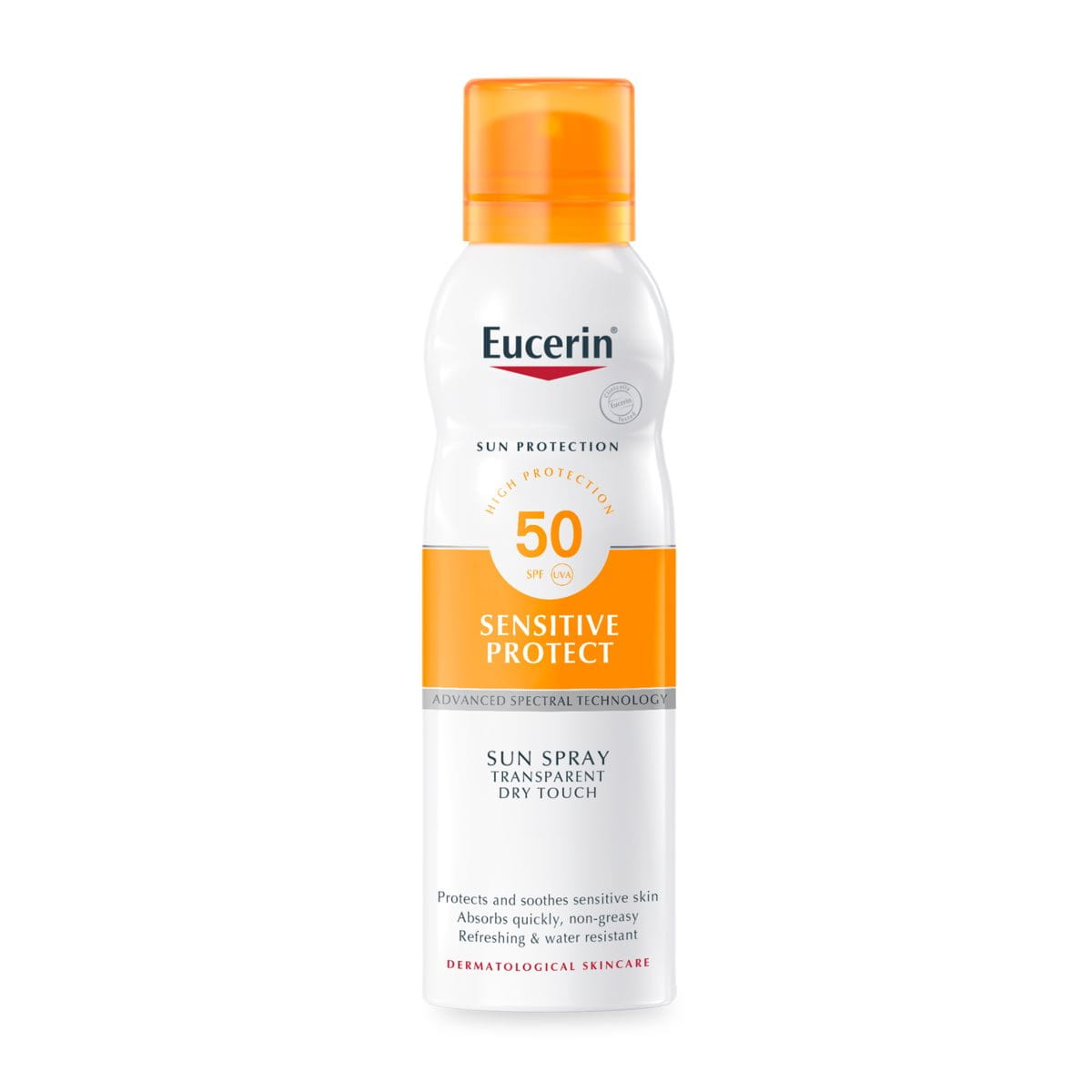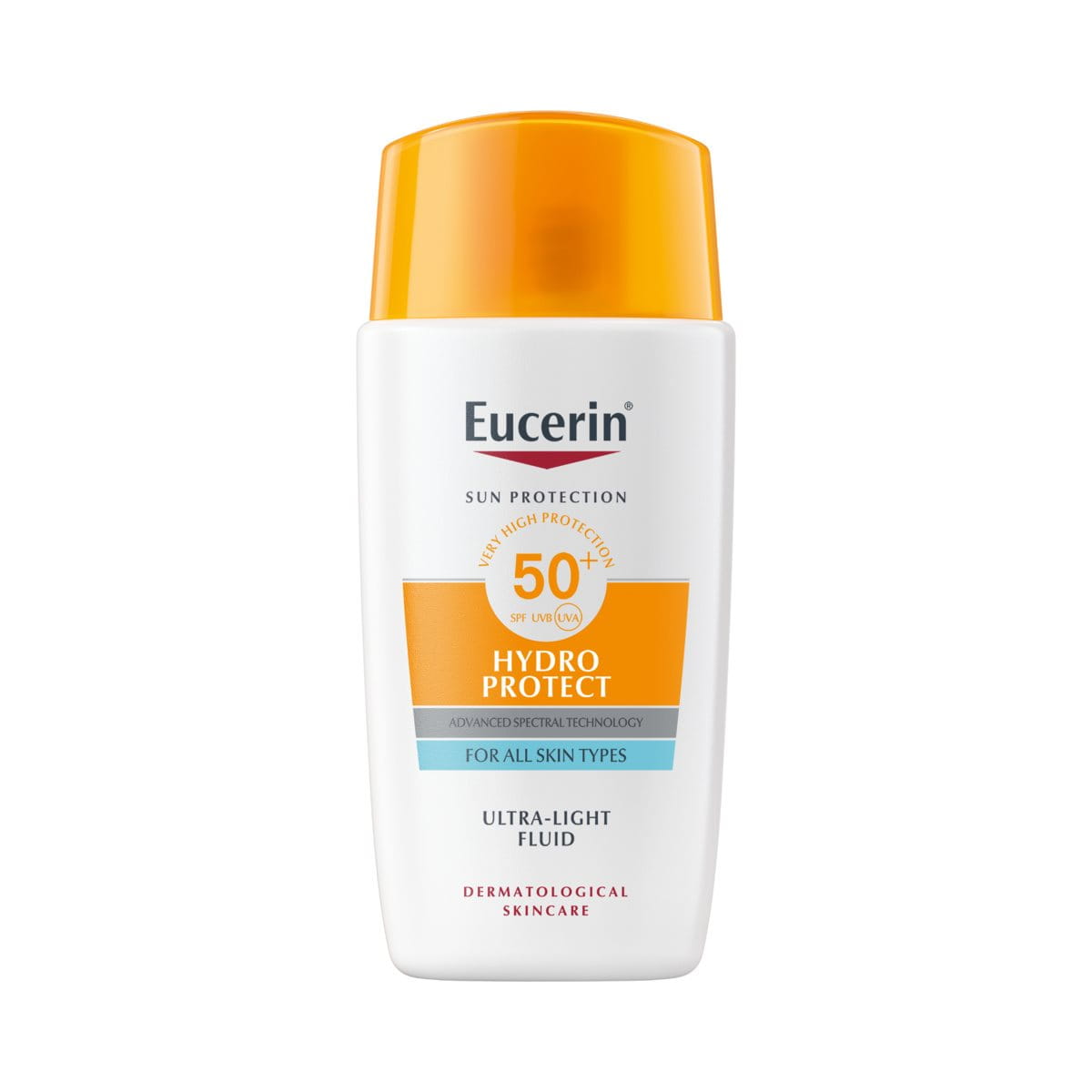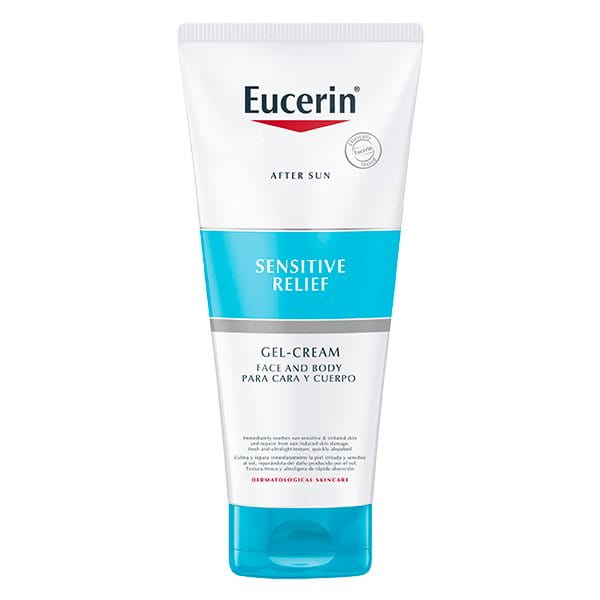To some, tattoos can be a form of self-expression, while to others tattoos can have a deep, cultural significance. Either way, it is essential to know what happens to your skin when it gets tattooed. In this article we’ll explain how to look after it to ensure your tattoo looks and feels healthy.
Tattoo healing process
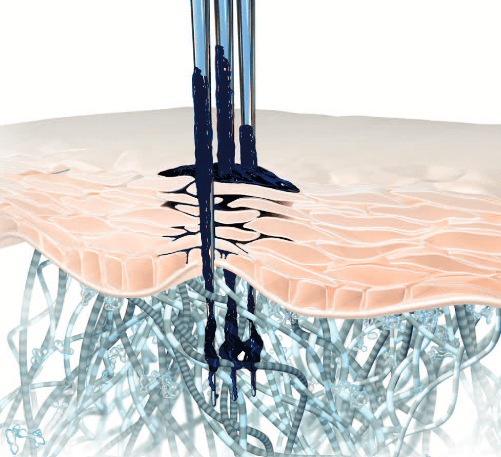
When skin gets tattooed, it is repeatedly punctured by tiny needles that have been dipped in ink. Using a tattoo gun, a tattoo artist will deposit the pigment into the dermis - the tissue just underneath the outer layer of skin - which is what makes a tattoo permanent.
While the end result may be worth it, this process causes trauma to the skin and the skin requires proper attention as well as care in order to heal.
The healing process happens in several stages:
- Initially, the skin perceives a tattoo to be an ‘injury’ and activates its natural defence mechanisms.
- In the first few hours, blood will begin to clot in the tattooed area and could cause swelling and redness.
- During the first week, the immune system sends white blood cells to remove damaged tissue and begin repairing the skin.
- Within the first few weeks the tattoo will begin to scab and a layer of dry skin might form.
- Gradually, new skin cells replace the damaged ones and the scab falls off, revealing the healed tattoo.
How long does a tattoo take to heal?
Generally speaking, it takes about a month for a tattoo to heal, but depending on a number of factors it may take up to three. Larger tattoos that cover more of the surface area take longer to heal, as do strongly-coloured tattoos as these require more needle punctures to deposit ink compared to those with thinner lines. As a result, there can be a greater inflammatory reaction and a longer recovery period.
How long should I keep my tattoo wrapped for?
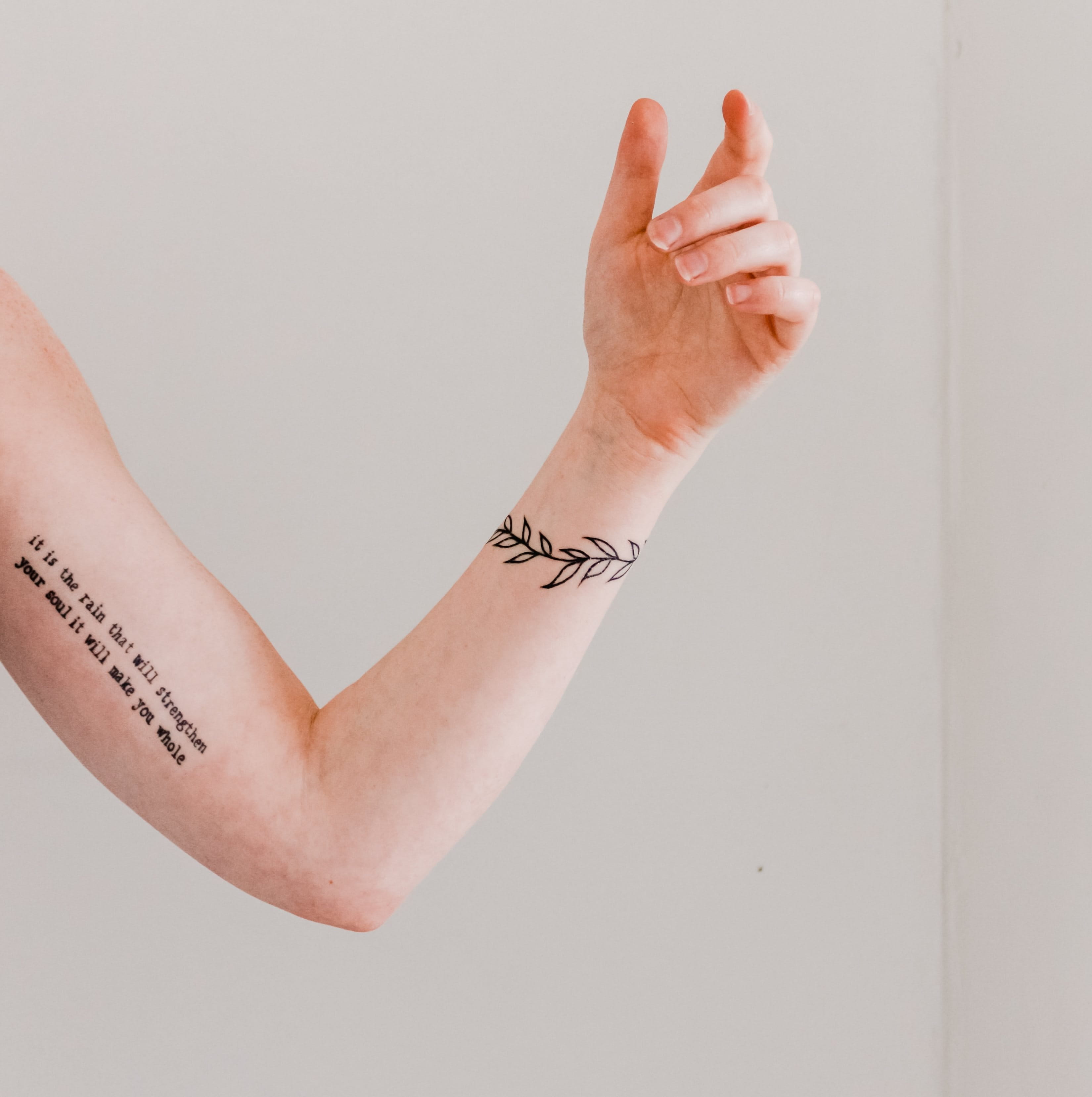
When your tattoo has just been finished, it is normal for your skin to be irritated and sore. There may be redness and swelling depending on the size of your tattoo.
The trauma to the skin means that it could be more prone to infection. To prevent this, your tattoo artist will wrap it in cling film or a similar plastic covering to protect the tattoo from brushing with clothes or coming into contact with surfaces that may harbour harmful bacteria.
You should always consult with your artist if you are not sure how long to keep your tattoo wrapped, but it is generally recommended to keep the plastic covering on for around 2-3 hours after getting tattooed because during this time, the skin is working hardest to heal itself.
How to look after a new tattoo
Once you remove the plastic covering from your tattoo, the next step is to rinse off any excess ink or fluids that may have wept from your tattoo during the initial healing process with a gentle, unscented soap.
Once the damaged skin is re-epithelialized, meaning it has healed, you can start taking care of it with moisturiser to help with itching and scabbing.
For tattoo aftercare, we recommend Eucerin Aquaphor Soothing Skin Balm. This dermatologically-tested balm promotes accelerated skin regeneration to ensure a fast and efficient healing process for your tattoo*. The key to Eucerin Aquaphor's effectiveness lies in its rich, nourishing formula.
Packed with ingredients such as petrolatum, mineral oil, and glycerin, it creates a protective barrier over the tattooed skin, shielding it from external irritants and preventing moisture loss. This barrier helps to maintain an ideal healing environment, allowing the skin to regenerate without interference.
*Use on re-epithelialized skin, typically after 3 days. Do not use on open wounds
Furthermore, Eucerin Aquaphor's formulation supports accelerated skin regeneration by creating a seal that enhances the skin's natural healing mechanisms. By keeping the tattooed area hydrated, moisturised, and protected, it helps to reduce scabbing and minimise the risk of infection, allowing the skin to heal more quickly. The balm's soothing properties also play a significant role in the healing process.
Eucerin Aquaphor's gentle and non-irritating formula helps to alleviate discomfort, itchiness, and redness associated with brand new tattoos. By providing a soothing and calming effect, it allows the skin to heal undisturbed, promoting a smoother and more comfortable recovery.
Sun protection for tattoos
Sun protection is necessary for all types of skin, but especially tattooed skin, to keep your tattoo looking vibrant. Sun damage can cause the tattoo to become blurry and dull. To prevent this, it is recommended to use SPF on your tattoos.
Eucerin Sun Protection is specifically designed to provide effective UV protection, both from UVA and UVB rays. The sunscreens are often water-resistant, making them ideal for outdoor activities and swimming where tattoos are particularly exposed or vulnerable.
Additionally, Eucerin’s Sun Protection range is dermatologically-tested and suitable for all skin types, minimising the risk of skin irritation and allergies. By using SPF to protect your tattoo from sun damage, you can look after it for years to come.
Our brand values

We deliver a holistic dermo-cosmetic approach to protect your skin, keep it healthy and radiant.

For over 100 years, we have dedicated ourselves to researching and innovating in the field of skin science. We believe in creating active ingredients and soothing formulas with high tolerability that work to help you live your life better each day.

We work together with leading dermatologist and pharmacist partners around the world to create innovative and effective skincare products they can trust and recommend.
